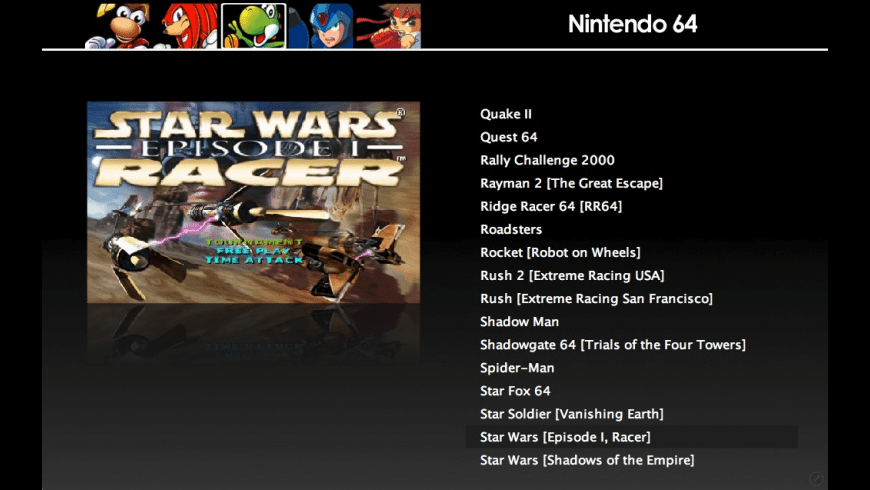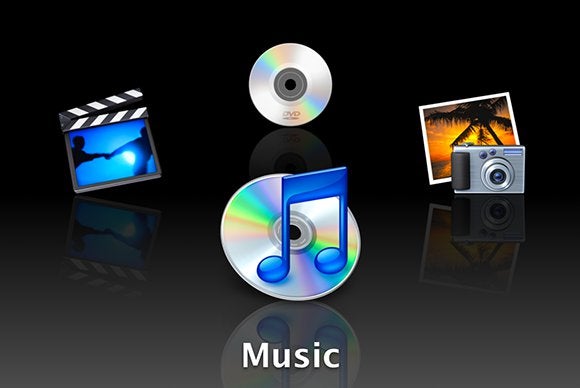With Emerson Lions Front Row, fans can cheer on the Lions as if they were in the front row of the arena! Created by PrestoSports in partnership with Emerson College, the mobile app gives fans.
| Developer(s) | Apple Inc. |
|---|---|
| Stable release | 2.2.1 (314) / November 9, 2009 |
| Operating system | Mac OS X |
| Type | Media Center |
| License | Proprietary |
| Website | www.apple.com/macosx/features/300.html#frontrow |
Front Row is a discontinued media center software application for Apple's Macintosh computers and Apple TV for navigating and viewing video, photos, podcasts, and music from a computer, optical disc, or the Internet through a 10-foot user interface (similar to Kodi and Windows Media Center). The software relies on iTunes and iPhoto and is controlled by an Apple Remote or the keyboard function keys. The first version was released October 2005, with two major revisions since. Front Row was removed and discontinued in Mac OS X 10.7.[1]
Versions[edit]
Introduction[edit]
Front Row was first unveiled on October 12, 2005 with the new iMac G5 (along with the built-in iSight camera, the Apple Remote, and Photo Booth).[2] The software was billed as an alternative interface for playing and running iPhoto, DVD Player, and iTunes (Internet radio stations could play by adding the station into a playlist in iTunes).
Apple TV[edit]
The next incarnation, released in the original Apple TV software in March 2007, was a complete, stand alone application that played content directly from libraries. Among the features added were more prominent podcasts and TV show menus, trailer streaming, a settings menu, streaming content from computers on the local network, and album and video art for local media. In the summer of 2007, Apple released an update adding streaming of YouTube videos.
Version two[edit]
Released in November 2007 with Mac OS X v10.5 (Leopard),[3] version two of Front Row included the new features introduced with the Apple TV (except for the YouTube viewer), a different opening transition, ending AirTunes functionality, and a launcher application in addition to the Command+Escape keyboard shortcut.

Front Row 2 has an undocumented plug-in architecture, for which various third-party plugins are now available, based on reverse-engineering the Front Row environment. Because it uses QuickTime to render video, Front Row can utilize any codec installed in QuickTime, including DivX, Xvid, and WMV, and play DVD images copied to the hard disk. However, because Front Row does not use QuickTime X, it lacks support for certain codec features like Sample Aspect Ratio.
'Take 2'[edit]
In January 2008, Apple announced an update branded 'Apple TV Take Two' for Apple TV Software. In addition to the prominent addition of direct downloads for movies, TV episodes, and podcasts via the iTunes Store, movie rentals, the ability to view online photos from Flickr or MobileMe (branded .Mac at the time), and the ability to stream audio to AirTunes were added. This update did away with Front Row and introduced a new interface for the original Apple TV in which content was organized into six categories, all of which appeared in a large square box on the screen upon startup (movies, TV shows, music, YouTube, podcasts, and photos) and presented in the initial menu, along with a 'Settings' option for configuration, including software updates.[4][5]
Discontinuation[edit]
Front Row was discontinued with the July 2011 release of Mac OS X Lion (v 10.7). The software appeared in neither the early Developer Previews nor the final version.
While it was initially possible to reinstall Front Row by copying the frameworks and application into OS X Lion,[6]iTunes v 10.4 on 22 July 2011 broke compatibility, causing those who updated iTunes to lose access to their music through Front Row.[7]
References[edit]
- ^AppleInsider Staff (February 26, 2011). 'Mac OS X Lion drops Front Row, Java runtime, Rosetta'. AppleInsider. AppleInsider, Inc. Retrieved February 27, 2011.
- ^'Apple Introduces the New iMac G5'. Apple PR. October 12, 2005. Archived from the original on July 25, 2006. Retrieved December 26, 2008.
- ^Apple – Mac OS X Leopard – Features – 300+ New FeaturesArchived October 16, 2007, at the Wayback Machine
- ^'Gallery: Apple TV Take 2 software update'. MacNN. February 12, 2008. Retrieved March 12, 2009.
- ^'How to update Apple TV software'. Apple. September 2, 2008. Retrieved March 12, 2009.
- ^9 to 5 Mac LLC (July 19, 2011). 'OS X Lion kills Front Row... here's how to get it back'. 9to5mac.com. 9 to 5 Mac LLC. Retrieved July 19, 2011.
- ^'Front Row missing with Lion upgrade'. apple.com.
Subscribe to this site's feed ››
Add to Google Toolbar ››
Submit News ››
Help, Guides, and News on making the Switch To Apple Macintosh Computers
Featured Guides
Macintosh Guides
How to Switch
How to Switch
What is Front Row?
- guides
Front Row is a multimedia application that allows Mac users to browse media on their computers using an Apple Remote or a keyboard. Front Row first debuted in October 2005 on Macs (running Mac OS X Tiger) that had built-in infrared sensors for the Apple remote.
Front Row is now installed on all new Macs and is part of the Mac OS X Leopard operating system, thus it can be used on Macs that do not have the infrared sensor.Front Row Mac
What can Front Row browse?Front Row transforms your Mac into a digital entertainment center. You can listen to music, podcasts, watch movies, DVDs, TV shows, and browse photos.
How is Front Row launched?
The original Front Row was accessible only via the Apple remote or keyboard shortcut. The Leopard version can now be launched as an application. This is a benefit to users who own a Mac Pro, Power Mac, or any other Mac that doesn't have a built-in IR sensor.
Updates
- May 1, 2009 - content revision
By: switchtoamac
Recent Guides

- What is Lion?
What is Disk Utility?
What is Boot Camp Assistant?
What is Snow Leopard?
What is Airport Utility?
What is Activity Monitor?
Quickly navigate to the Utilities folder
What are Utilities?
Forward delete on a Mac keyboard
Show or Hide Sidebar items via Preferences
Determine which updates have been installed by Software Update
Disable automatic updates in Software Update
Manually run Software Update on Mac OS X Leopard
Different ways to launch a Mac OS X Application
Expose for Apple keyboards that have volume controls on F9, F10, and F11
What is MobileMe Gallery?
What is iWeb?
Visit the Guides List
Front Row Mac Os
Recently Updated
- What is Lion?
- What is Mac OS X?
- MacBook Pro
- MacBook Air
- MacBook
- Choose Your Mac
- The Mac Models
- What are Utilities?
- What is Disk Utility?
- What is Boot Camp Assistant?
- What is Snow Leopard?
- What is Airport Utility?
- What is Activity Monitor?
- Quickly navigate to the Utilities folder
- Expose for Apple keyboards that have volume controls on F9, F10, and F11
- Forward delete on a Mac keyboard
- Show or Hide Sidebar items via Preferences
- Customize the Sidebar - Hide and Show
- Finder and Sidebar - an Ideal Combination
Recent Articles
 Apple to offer free OS X Lion upgrade for new Macs via the Mac OS X Lion Up-To-Date program
Apple to offer free OS X Lion upgrade for new Macs via the Mac OS X Lion Up-To-Date programForbes: Apple Gets Predatory With Lion OS Pricing
Town of Wellesley Massachusetts - 'Macs Apple of their eye'
WWDC 2011 - Apple's SVP of Product Marketing Phil Schiller, discusses the State of the Mac
WWDC 2011 begins today - Mac OS X Lion, iOS 5 and iCloud unveiling sets the stage for a Unified Apple Platform
Apple CEO Steve Jobs to introduce Apple's next generation software Mac OS X Lion, iOS 5, and iCloud during WWDC Keynote Address on Monday, June 6
Amazon launches a Mac Download Store - software and games for your Mac
AllThingsD - The Mac is kicking ass
Where in the world are Mac sales growing? Everywhere.
Corporate Mac sales surge 66 percent as Apple makes significant enterprise headway
Parallels Transporter an app that makes it easier to switch from a Windows PC to a Mac
Front Row Mac App Download Windows 10
RSS Feed · Guides RSS Feed · About · Shop · Privacy Policy · Terms of Use · Best viewed in Safari, Firefox, and Internet Explorer 7 or higher
Copyright © 2011 Switch To A Mac · All rights reserved. · All trademarks and copyrights remain the property of their respective owners.